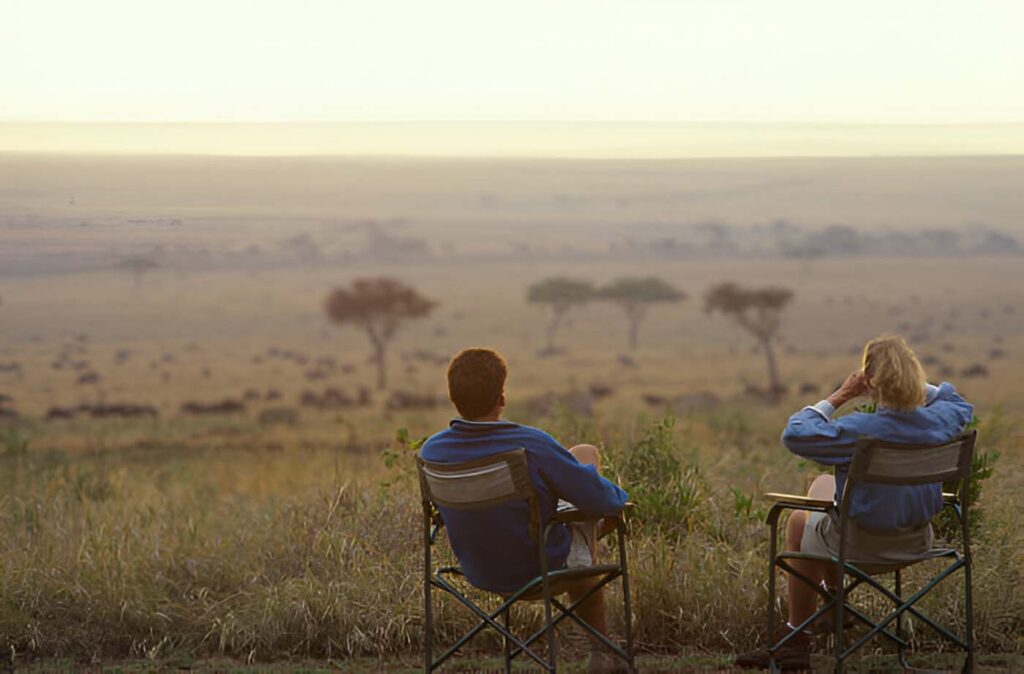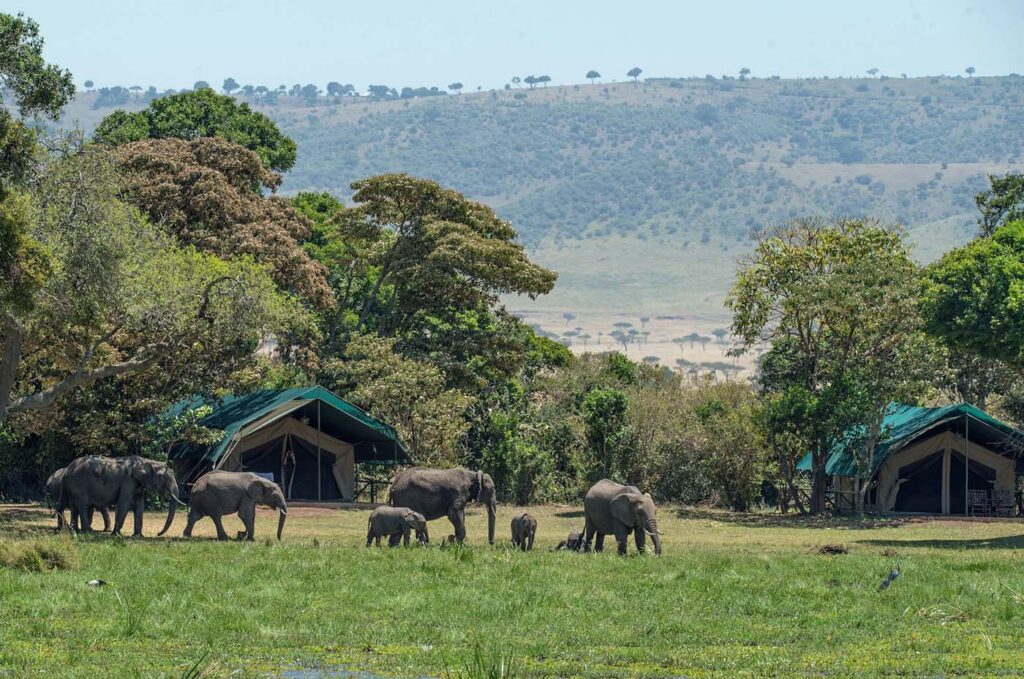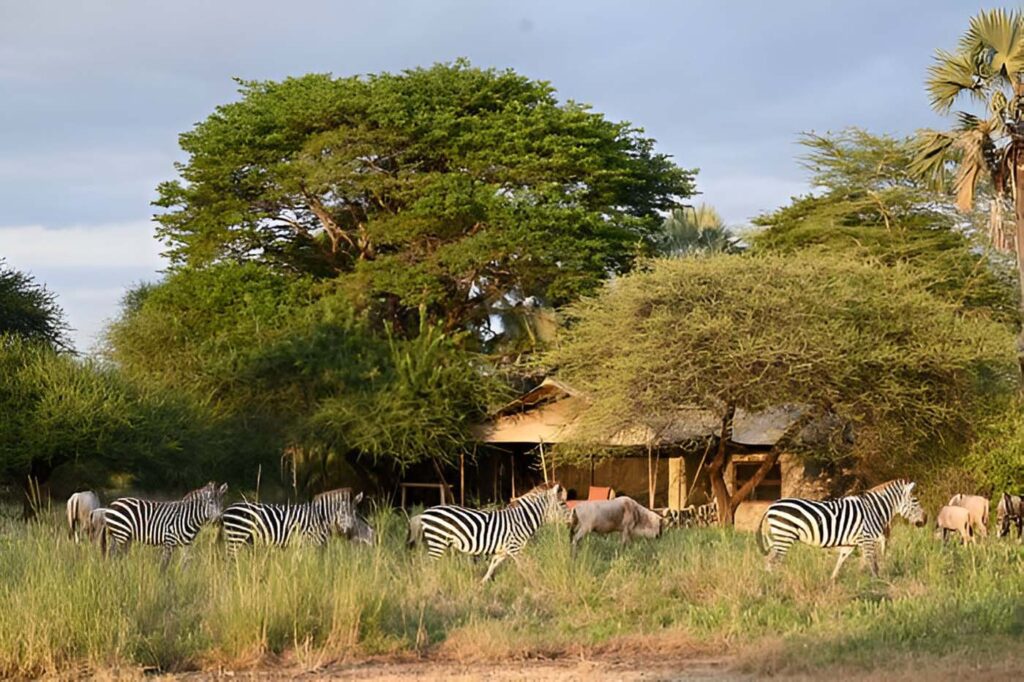The internet has become the invisible thread running through nearly every part of our lives. From ordering groceries and paying bills to working remotely and streaming our favorite shows, we’re more connected than ever before. It’s convenient, but it comes at a cost.
We scroll through social media late into the night, our faces bathed in the blue glow of screens that promise connection but often deliver isolation. We answer emails at dinner, splitting our attention between loved ones and inbox notifications. We fill quiet moments with news feeds and endless scrolling, our fingers moving almost unconsciously across glass surfaces. Slowly, almost without noticing, we lose the ability to simply be present in our own lives.
Key Reflections
The Fundamental Shift: Safari digital detox has transformed from circumstantial to intentional. Perfect connectivity is now available in Africa’s remotest wilderness areas, ending decades of forced disconnection.
The Philosophical Question: With Starlink making perfect internet available everywhere, we must ask whether we travel to wild places to stay connected to our digital lives or to break free from them entirely.
The Choice Paradox: Knowing connectivity is available fundamentally changes the wilderness experience, even for those who choose not to use it. The mere option alters our relationship with presence and mindfulness.
The Generational Divide: Older travelers often view disconnection as a luxury they specifically seek, while younger travelers see real-time sharing as integral to their experience rather than intrusive.
The Community Impact: The same infrastructure that might compromise guest digital detox enables conservation efforts, anti-poaching coordination, and economic opportunities for local communities.
The New Challenge: Safari operators must now actively choose their connectivity philosophy rather than having it determined by geography. The decision becomes about values, not capabilities.
When the Last Wild Places Go Online
This technological leap creates a profound paradox. Just as our need for digital detox has never been greater, the last places on Earth that naturally enforced disconnection are going online. The question isn’t whether safari camps can provide internet anymore, it’s whether they should.
A luxury camp in the heart of the Serengeti can now offer internet speeds that rival urban hotels. The infrastructure exists to keep everyone connected 24/7, maintaining the digital lifelines that have become so central to modern existence. But does this enhance or fundamentally alter what we seek when we journey to Africa’s wilderness?
The transformation is happening rapidly. Camps that couldn’t guarantee a phone call five years ago now have guests livestreaming sunset game drives on Instagram. Remote conservancies where silence once reigned are filled with the familiar ping of notifications and the glow of screens after dark.
The Philosophical Divide
Safari operators find themselves at the center of an unexpected philosophical debate. On one side are guests who genuinely need connectivity, business travelers who can’t afford complete disconnection, parents anxious about being unreachable, and younger travelers for whom sharing experiences in real-time feels natural rather than intrusive.

On the other side are those who specifically seek safari experiences precisely because they offer escape from our hyperconnected world. They worry that perfect connectivity will transform safaris from transformative journeys of presence and mindfulness into merely exotic backdrops for the same digital lives they’re trying to escape.
As one camp manager in Kenya’s Maasai Mara told me: “The last thing we want is guests returning from an incredible game drive, sitting at our beautiful bar overlooking the savanna, and staring into their phones instead of sharing their excitement with fellow travelers. Safari is fundamentally about being present in one of the world’s last wild places.”
The Technology That Changed Everything
The Starlink revolution didn’t happen gradually. It arrived with dramatic impact. In 2024, the service introduced kit rental options for just $15 (KSh 1,950) monthly, making satellite internet accessible to smaller camps that couldn’t afford traditional systems costing $50,000-100,000 to install.
Real user experiences confirm the transformation. One traveler reported getting 171 Mbps “deep in the thickets” of rural Kenya, where traditional internet was impossible. Another experienced 100Mbps at remote locations where cellular service was unreliable. These aren’t incremental improvements, they represent a fundamental shift in what’s possible in remote areas.
The performance data tells the story: 96.9% of internet subscribers in Kenya now opt for speeds ranging between 100 Mbps and 1 Gbps, with satellite connections accounting for 52.98% of all high-speed internet subscriptions. Starlink has become the preferred choice for high-speed services in remote areas.
What We Lose When We Stay Connected
The deeper question isn’t technical, it’s experiential. What happens to the transformative power of safari when the very conditions that create transformation disappear?
Safari has historically offered something our modern lives desperately lack: sustained attention to the natural world. Game drives that unfold without the option to immediately document and share every moment. Meals where conversations flow without competing against notification alerts. Evenings by the fire that feel infinitely richer when the only light comes from flames and stars above, unmarred by the artificial glow of screens.

The forced disconnection wasn’t just about lacking internet, it was about rediscovering rhythms older than human civilization. The cycle of day and night unmarked by screen time. The patient pace of wildlife unrushed by deadlines. The profound beauty of living fully in the present moment, completely absorbed in an experience rather than simultaneously documenting it.
Research on nature-based restoration suggests that wilderness experiences can activate restorative mental processes, but primarily when we’re not simultaneously processing digital inputs. The key is sustained attention to natural environments rather than divided attention between nature and devices.
The New Reality of Choice
With Starlink’s infrastructure breakthrough, disconnection has shifted from circumstantial to intentional. Camps must now actively choose their connectivity philosophy rather than having it determined by geography. Some embrace full connectivity as a guest service. Others maintain strict device-free policies to preserve the traditional safari experience.
The most thoughtful operators are experimenting with hybrid approaches: Wi-Fi in guest rooms only, allowing private connectivity without disrupting communal experiences. Time-based restrictions that provide internet during rest periods while preserving the magic of shared meals and evening storytelling. Zone-based systems where technology stays in designated areas, leaving dining rooms and fire circles as sanctuaries for human connection.
But even these compromises raise questions. Does knowing that perfect connectivity is available in your tent fundamentally change how you experience a game drive? Does the option to immediately share a lion sighting alter the way you actually see it?
The Generational Divide
The connectivity revolution has revealed stark generational differences in how travelers relate to technology and wilderness. Older travelers often view disconnection as a luxury, something they specifically seek and pay premium prices to experience. They remember life before smartphones and can more easily imagine safari without them.
Younger travelers, particularly those under 35, increasingly view connectivity not as intrusion but as integration. For them, sharing experiences in real-time feels natural rather than disruptive. They’ve never known travel without the ability to instantly connect with friends and family, and they don’t necessarily see this as diminishing their experiences.
This creates complex dynamics for safari operators. Families arrive with conflicting expectations. Grandparents who specifically chose an “offline” camp find themselves with teenagers who consider Wi-Fi a basic human right. The same infrastructure investment that delights one demographic frustrates another.
Beyond Personal Preference: The Community Impact
The Starlink revolution affects more than guest experiences. For local communities around safari camps, reliable internet represents genuine opportunity. Education access for children in remote areas. Communication with family members who’ve moved to cities for work. Economic opportunities through online business and mobile money transactions.
Rangers now use WhatsApp groups for anti-poaching coordination. Conservation organizations depend on internet for real-time wildlife monitoring data. Community conservancies use connectivity for education programs and economic development initiatives.
This broader context complicates the simple narrative of digital detox. The same infrastructure that might compromise a guest’s disconnection experience enables conservation efforts and community development. The technology that threatens traditional safari experiences also supports the people and wildlife that make those experiences possible.
The Philosophical Question We Can’t Avoid
As Starlink transforms the technological landscape of African wilderness, we’re forced to confront fundamental questions about travel, technology, and what we value in wilderness experiences.

Do we journey to remote places to remain tethered to our daily routines, carrying our regular lives with us like digital baggage? Or do we travel to break free from those patterns, to rediscover parts of ourselves that only emerge when we step away from the constant demands of connectivity?
The most transformative safaris have always reminded us that life exists beyond the endless stream of notifications. They’ve shown us the profound beauty of living fully in the present moment. They’ve reconnected us with something essential about being human that our hyperconnected world often obscures.
With perfect connectivity now available in the heart of Africa’s wilderness, the question becomes: can we still access those transformative experiences when disconnection becomes a choice rather than a circumstance?
The Courage to Choose Less
Perhaps the Starlink revolution represents not the end of safari as digital detox, but its evolution. Instead of forced disconnection, we now face the more challenging prospect of intentional disconnection. The infrastructure exists to keep us connected, but do we have the discipline to choose otherwise?
Some travelers are discovering that the option to connect, coupled with the choice not to, actually enhances their sense of intentional presence. Knowing they could check email but choosing instead to watch elephants at a waterhole becomes an active form of mindfulness rather than a passive circumstance.
Others find that any connectivity option fundamentally alters the experience. The mere knowledge that Wi-Fi exists in their tent changes how they relate to a game drive. The possibility of sharing a sunset immediately makes them experience it differently.
What the Technology Revolution Really Means
The Starlink transformation of African safari connectivity represents more than just faster internet in remote places. It’s forcing us to examine what we truly seek when we travel to the world’s last wild places.
In an age where we carry the entire internet in our pockets, perhaps the greatest luxury isn’t more connectivity, but the wisdom to know when to choose less. The technological capability to stay connected everywhere challenges us to become more intentional about when and why we disconnect.
The question is no longer whether safari camps should provide Wi-Fi. That decision has largely been made by market forces and technological capability. The real question is whether travelers can find ways to use this connectivity that enhance rather than diminish their relationship with the natural world.
Sometimes, the most powerful connection we can make isn’t with our home network, it’s with the ancient rhythms of the African bush. Whether Starlink’s perfect connectivity helps or hinders that connection will ultimately depend not on the technology itself, but on how consciously we choose to use it.
The safari connectivity revolution is complete. Now the real work begins: learning to be human in a perfectly connected world, even in the places we go to remember what it means to be naturally, authentically present.



